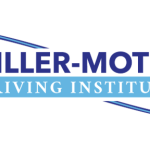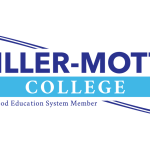Becoming a plumber is a rewarding career path that combines practical skills with problem-solving. But how long does it actually take to get there? The answer depends on the specific route you choose.
Traditional Apprenticeship
- The most common path:This involves on-the-job training with a licensed plumber. With this route, you can learn by doing, gaining hands-on experience while studying plumbing theory.
- Time commitment:Typically 4-5 years.
- Benefits:
- Earn while you learn.
- Gain valuable real-world experience.
- Build strong relationships in the industry.
- Drawbacks:
- Can be physically demanding.
- Requires dedication and consistent effort.
- Finding an apprenticeship opportunity/position can be competitive.
Trade School or Vocational School
- Faster track:These programs offer focused classroom instruction and hands-on training in a controlled environment.
- Time commitment:10 months – 2 years for a diploma or certificate.
- Benefits:
- Provides a solid foundation in plumbing theory and techniques.
- Can be more affordable than college.
- Offers flexibility in scheduling.
- Drawbacks:
- May not provide the same level of real-world experience as an apprenticeship.
- You may need to supplement your education with on-the-job training.
Community College
- Comprehensive education:Community colleges offer various credentials in plumbing technology, providing a more in-depth education.
- Time commitment:2 years.
- Benefits:
- Develop a strong understanding of plumbing principles.
- May increase your earning potential.
- Can transfer credits to a four-year university, based on the receiving institution’s policies.
- Drawbacks:
- Can be more expensive than trade school.
- May require more classroom time.
Military Training
- Specialized skills:Some branches of the military offer plumbing training as part of their service.
- Time commitment:Varies depending on enlistment terms.
- Benefits:
- Gain valuable skills and discipline.
- Potential for job security after military service.
- Drawbacks:
- Requires meeting military service requirements.
- Can involve deployment and potential risks.
Licensing and Certification
- Required in most states:Once you’ve completed your training, you’ll need to obtain a plumbing license.
- Process:Typically involves passing a written exam and sometimes a practical exam.
- Benefits:
- Demonstrate your skills and knowledge.
- Allows you to work independently or start your own business.
- Drawbacks:
- Can be challenging to pass.
- May require continuing education to maintain your license.
Factors that Can Influence the Timeline:
- Your prior experience:If you have any prior experience in construction or other trades, you may be able to complete your training more quickly.
- Your learning style:Some people learn best in a classroom setting, while others thrive in hands-on environments.
- Your dedication and work ethic:Consistent effort and a strong work ethic are crucial for success in any plumbing program.
- Job market demands:The demand for plumbers can vary depending on your location and the current economic conditions.
Beyond Training: Continuous Learning
The plumbing field is constantly evolving. New technologies and techniques are continuously being developed. To stay competitive and successful, you’ll need to continue learning throughout your career. This may involve attending workshops, taking continuing education courses, or staying updated on industry best practices.
A Rewarding Career
Becoming a plumber requires dedication and hard work, but the rewards can be significant. Plumbers can enjoy job security, good earning potential, and the satisfaction of solving problems and creating functional spaces. If you’re looking for a challenging and rewarding career that allows you to use your hands and mind, plumbing may be the right path for you.
Remember:The information provided in this article is for general guidance only. The specific requirements for becoming a plumber may vary depending on your location and the chosen training path.
It can be helpful to:
- Research plumbing programs in your area.
- Talk to licensed plumbers about their experiences.
- Shadow a plumber to see if it’s the right fit for you.
By carefully considering your options and pursuing the right training, you can embark on a successful and fulfilling career as a plumber.
If you are ready to see if the Miller-Motte plumbing program is right for you, submitthis formor call us at 800-705-9182.
Blog Disclaimer: Information within this blog is for general information purposes only. Miller-Motte does not assume or guarantee certification/licensures, specific job/career positions, income earning potential, or salary expectations based on the programs offered at Miller-Motte. Career and program information statements in this blog do not guarantee that programs or other information mentioned are offered at Miller-Motte. Miller-Motte cannot guarantee employment or salary. The Plumbing program prepares students for entry-level careers within the plumbing field, such as a service technician. This program does not prepare students to take the plumbing licensing exam. Although the information taught in this program may be helpful, it does not prepare students to become licensed plumbers.
Information within this blog is for general information purposes only. Miller-Motte does not assume or guarantee certification/licensures, specific job/career positions, income earning potential or salary expectations based on the programs offered at Miller-Motte. Career and program information statements in this blog do not guarantee that programs or other information mentioned are offered at Miller-Motte.




